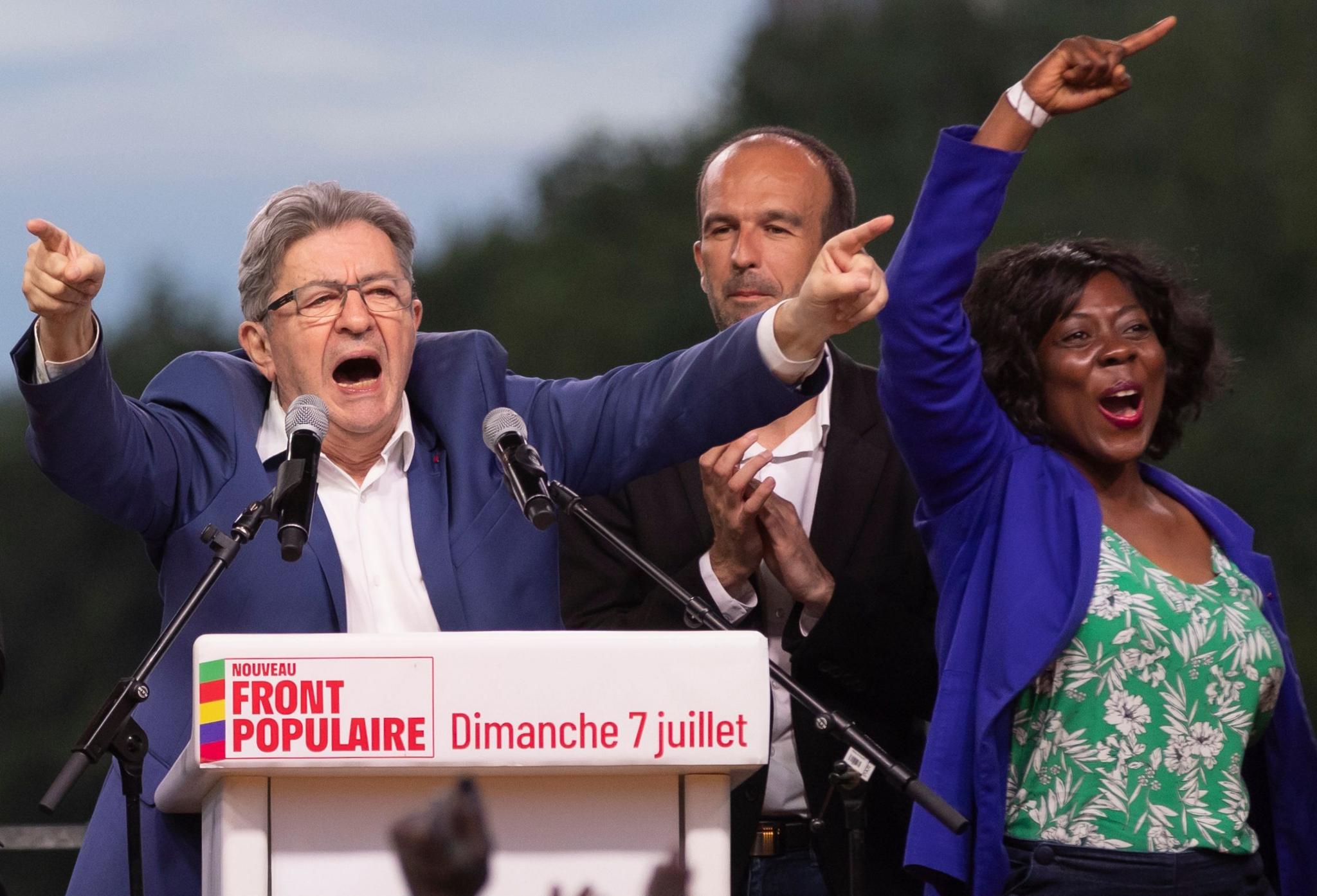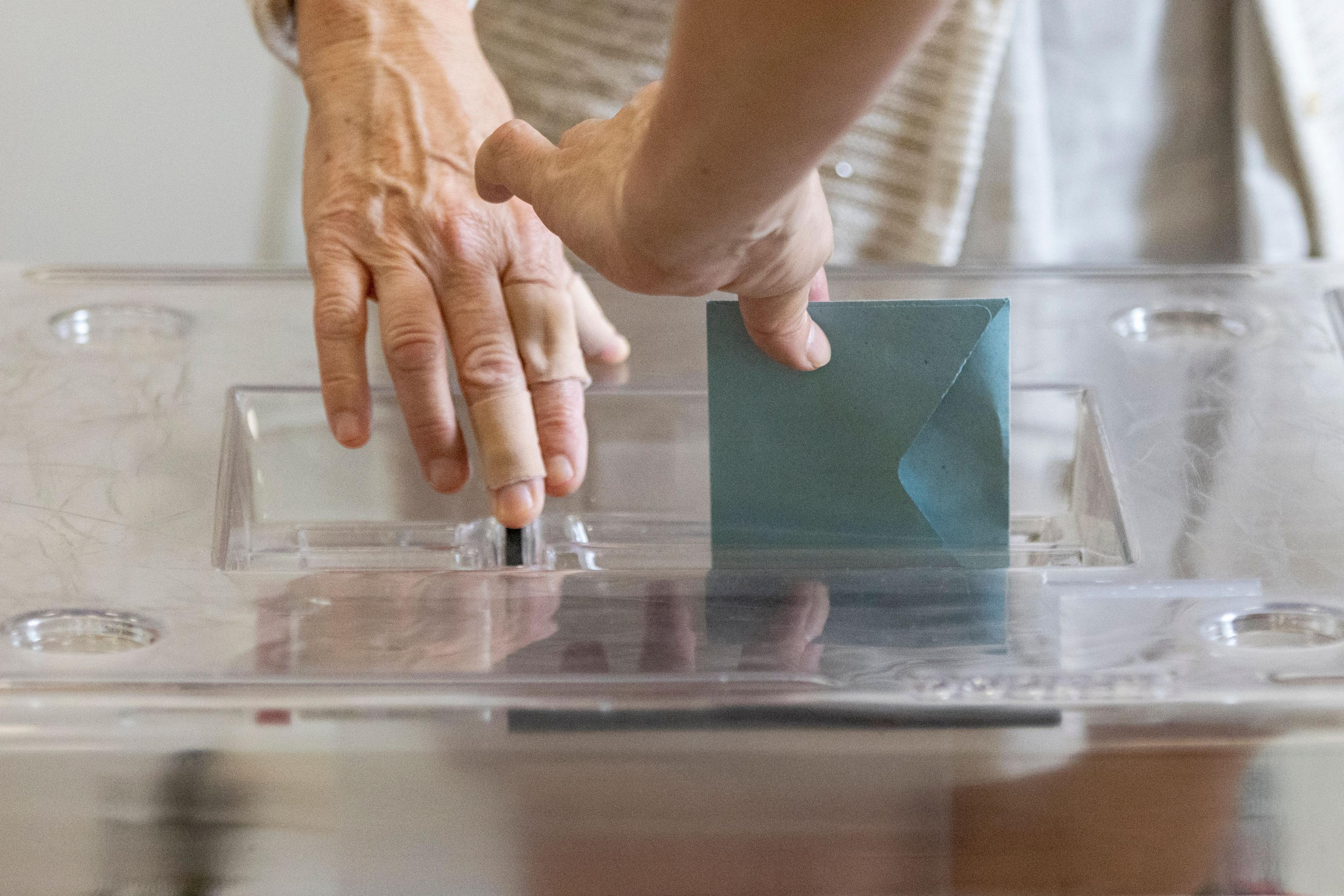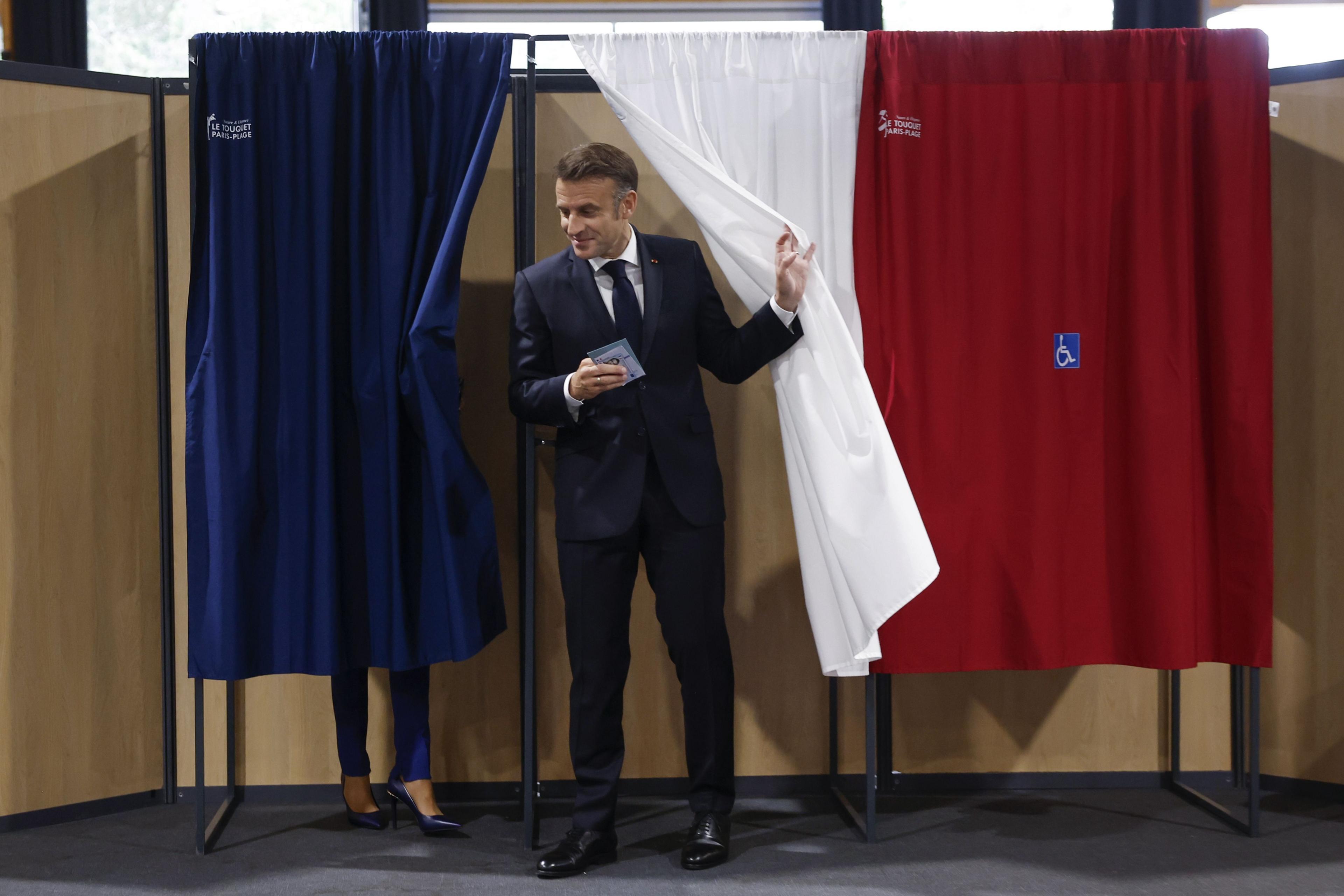Surprise election result in France leaves no clear winner

Leaders of La France Insoumise, one of the parties which make up the New Popular Front, celebrate doing well in the French elections
- Published
No party has won an overall majority in the French parliamentary elections - leaving the country with no clear winner.
French President Emmanuel Macron called a snap election at the beginning of June.
In France, the parliamentary elections have two rounds of voting.
The first round of voting, which was on 30 June, resulted in the National Rally party coming first, so many people thought they could do well in the second round.
However, after people voted in the country's second round on 7 July, official results showed the New Popular Front coming first.
President Macron's party, the Ensemble alliance, came second and the National Rally party came third.
Why is there no clear winner?

The second round of voting in the French elections resulted in no clear winner
The French parliament is made up of seats, just like the UK parliament.
When people vote for a candidate they are voting for that person to have a seat in the parliament - which is called the National Assembly in France.
There are 577 seats in the National Assembly, but to govern a party needs to win 289 which is more seats than all the other parties put together.
Although the New Popular Front alliance has the most seats, they do not have enough for a majority.
When this happens and no one party wins more seats than all the others put together, it is called a hung parliament.
It means that the party with the most seats would need support from another party to pass laws.
When a hung parliament happens parties would need to work together in order to have a majority.
The New Popular Front alliance, the party which came first in France, is already made up of different political parties grouped together.
Some of the other parties in France have said that they will not work with some of the people in the New Popular Front alliance.
Read more
French president calls snap election
- Published10 June 2024
French elections: Historic first round victory for National Rally party
- Published1 July 2024
What is a hung Parliament?
- Published10 June 2017
What happens now?

In France it is the President, Emmanuel Macron, who decides who forms the new government.
But then there is a vote after by the National Assembly, so it needs to be a choice which the majority would agree with.
President Emmanuel Macron will have to work with the new government.
This does not affect his job because he still has three more years as President but with France facing political instability it is up to Macron to find a solution.
